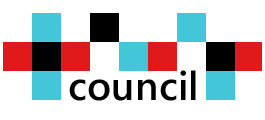Rob van Kranenburg: The mobile phone should be in public hands.
There are three main reasons:
- Individual and unique encryption enables signing, authentic data, and authenticates IoT devices on the body, in the home and car. Disposable identity mode ensures not all communication leaves and enters the device tied to the master personality, while remaining authentic. The EU or NL OS is embedded on the chip. Legal is any communication from that device in combination with OS and unique hardware properties.
- A common and deliberated educational framework for what kind of apps, services and experiments run on the device. A joint new messaging service, integrated school, health, administrative tools like travel credentials in the wallet, cv… are co-created ideally on a European scale, but also on local or national scale. Most if not all data stays on the device (edge) creating a common edge cloud keeping value and added value inside the common framework. AI algorithms will be public and trustworthy before deployed and tested. Peer to peer protocols can run next to tcp-ip. This is the fading out end of the big platforms whether in search, shopping or entertainment and the emergence of new values driven ones.
- A balanced innovation – resilience – cybersecurity – European values embedded in § Data Act, § AI-Act, § European Chips Act, § NIS 2-Richtlinie, § Cyber Resilience Act, § Cloud Computing, § Digital Markets Act, § Digital Service Act, § Data Governance Act, §Industrial Metaverse is hardcoded on the device. These values can only be hardcoded not achieved by national governments who have outsourced necessary capabilities or a massive (obsessive compulsive) European regulatory framework with only fines to work with non-compliance.
Things are very simple. Organizations that depend on taxes it claims from citizens must own the means of governance to govern. Citizens will understand that instead of being captured in shareholder value, this system builds value for all in a democratic way. A broad societal debate about what kind of a smart society do we want can finally be an achievable goal. Tribes can be formed on the choice of settings. Local and national referenda on topical issues are easily scripted. As Tim Bouma, Director, Verification and Assessment Digital Governance Council, says: We need signed data that is portable between systems and meaningful across contexts. That’s about it.
This is a normal operation in a fundamental shift in the data – information – knowledge paradigm. When in 1452 the ability rose to print cheap books, the power structure built a huge infrastructure and only opened a public library in Den Haag in 1917. Schools, codex, universities, diplomas, books banned, to build notions of fact and fiction, truth, and falsehoods, legal and illegal. All this is man made and a response over centuries to gradually educate its population into the paradigm. This paradigm has run its course. The cost of not doing this is thus equally simple, the breakdown of the hegemonic glue that fed into the notion that common sense equals the paradigm. When this shifts you either need to have a new frame ready and move into that or you break down.
Economically: A new company is set up with the Dutch State owning 51%. All device holders are shareholders. Investors cannot be paid a dividend, but they have the first right to invest in new spin offs coming from the system. Taxes are paid automatically through VAT and a general fee.
Ethically: Embedding Self Sovereign ID and the Disposable ID framework. Accountability over anonymity is the key. When a contract with an energy company is signed it only needs to know that I can pay so I send that credential. That is all it needs to know.
Practically: By the age of 14 91% of children are in possession of a smartphone. At that age they receive the Team-phone which they will start to use gradually more than their commercial ones as the content is rich, the information hyperlocal (drawing from the full potential of Dutch administration, news, and friends) and special school functionalities.
Politically: Countries identify as zones of communication/taxation instead of relying on territory and kinetic borders.
This plan is doable with the tools around today. It is a new form of democratic governance.
The 21st century does not need politicians, parties or voters, just participants.
Rob van Kranenburg @robvank
A presentation for One Conference
See also
Hybrid sovereignty in Europe as a 500 million #IoT value model for all its citizens
2017
New instruments of governance for our societies
Article · March 2012
